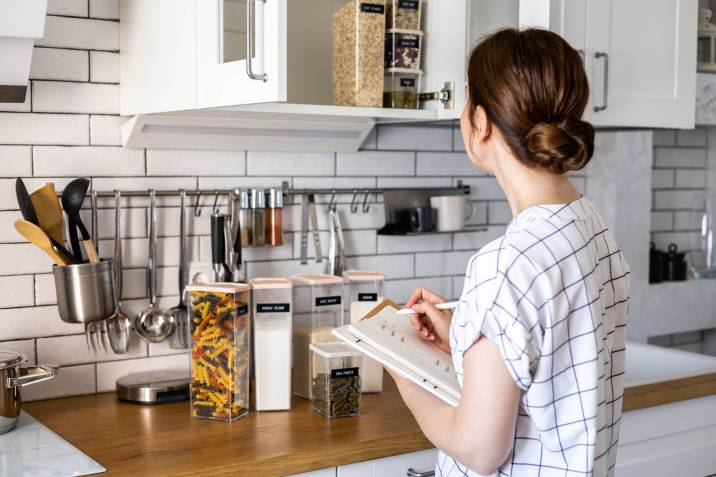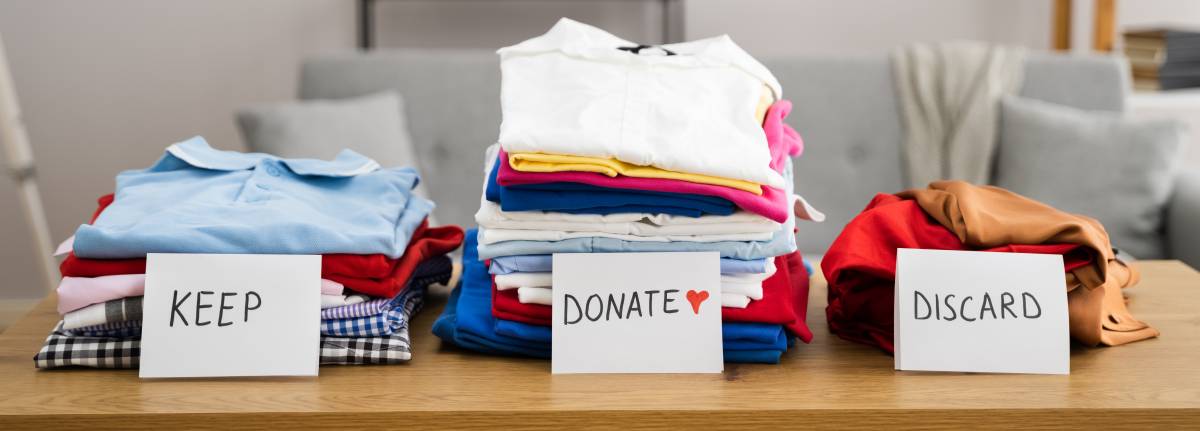- Home/
- Guides/
- Home Organiser/
- Earn Money Organising

How to become a professional organiser & earn more money
Put your organising and decluttering skills to good use!
Find organising jobsLast Updated on
If organising and decluttering anything from pantry supplies to personal documents or events brings you joy, you may be glad to hear that there is a profession just for you.
There are many different things you can do as a professional organiser. Ultimately, your role is about finding the most efficient way for your clients to sort their space. It’s a great way to make extra money, especially if you enjoy this kind of work. Read on to learn how you can become a professional organiser.
What work can you do as a professional organiser?

There are many ways to make money as a professional organiser. The clients you’ll work with may need help with their homes, workspaces, and events. Here are some examples of the work you may do:
Organising physical documents
Creating storage solutions
Packing and unpacking items
Lifestyle coaching, e.g., minimalism
Optimising business workflows
Speaking engagement, e.g., public speeches
Organisational training, e.g., organisational skills
Paper and filing management
Budgeting and financial planning
Home organising
As a professional home organiser, you can work directly with your clients. Here, you can organise your clients’ personal spaces, be it in their closets, kitchens, or home offices.
Pantry and closet space organisation
Space management for home downsizing
Clutter management
Moving and relocation management — for packing and settling in
Designing workflows for home offices
Digital file organising
Event organising
Do you enjoy a more social setting for organising? You could also look into organising different events. You can provide the following services:
Event management
Event communication and coordination
Budget planning
Business organising
Organising isn’t just about cleaning up physical clutter! If you live in a big city, there will be full-time positions open for professional organisers. The work you’ll do can vary for each business’s needs. Here are some examples of work you can explore:
Designing optimal workflows for businesses
Admin work, e.g., physical and digital file organisation
Creating storage solutions
Speaking engagement
Organisational training
Organising consultancy
Ready to make a bigger commitment to take on projects full-time with yourself as the boss? Start an organising consultancy so you can build even more experience and get bigger projects. You can choose the range of services you can offer as well.
This will mean that you’ll need to register your business. Learn how in the next section!
How to become a professional organiser

There’s no set path to becoming a professional organiser. It pays to be armed with the knowledge you need to know before investing in the job. Here are some key things you’ll need to know before getting started.
1. Secure your toolkit and work equipment
A professional organiser’s toolkit will differ depending on your area of expertise and your client’s needs. To kick things off, here’s a list of essential tools all organisers should have when starting.
Standard writing supplies like pens and papers
Office supplies such as clipboards, staplers, and scissors
Labels or label makers
Adhesives like tape and glue and adhesive removers
Disinfectants for cleaning surfaces
Measuring tape
Tools for basic installation like pliers, screwdrivers, hammers
Personal protective equipment (PPE) like gloves, masks, and protective clothing
2. Find experience
You don’t need to be a professional right away. Find a client who needs your help and build your knowledge in problem-solving. Every organiser will have a unique situation they’ll need to figure out as they go along.
The best place to start is with friends who need assistance. You can then start networking from there.
3. Build a portfolio
Documenting their work is a step others might overlook. Having a portfolio ready will help you land more clients. Curate all your organisational work online through a website or social media. Both are easy to whip out to potential customers and are great for exposure too!
4. Become a Certified Professional Organiser (CPO)
Set yourself apart from your competitors by becoming a Certified Professional Organiser (CPO) and joining the Association of Professional Declutterers & Organisers (APDO). This gives you an edge with credibility, the capacity to offer more complex services, and ultimately gain more knowledge and opportunities through conferences and further professional development.
Here are some requirements you’ll need to note:
You must be over 18
You must be a registered taxpayer
Take a course for Professional Organiser Training
Be ready to pay a joining fee for the ADPO membership
1,500 hours of organising work over the last 5 years
Sign and adhere to the ADPO Code of Ethics
Get work experience with your organiser training
Find work that you love
Being a professional organiser requires a lot of effort and think time to solve a client’s concern in sorting their spaces, but it can definitely be rewarding if you’re passionate about it. If you’re ready to get started as a professional organiser, you can sign up as a Tasker and find work you know you’ll truly enjoy.
Create your profile and start browsing jobs in minutes
Start earning now
Frequently asked questions
You must be ready with everything you need before accepting a job as a professional organiser. Here’s a quick checklist:
Identify the type of organising you thrive best in
You can opt to take Professional Organiser Training before finding a job
Gather the equipment you know you’ll need
Set aside petty cash if you need more materials for your service
Connect with clients who need your services
Freelance professional organisers are usually paid by the hour, while full-timers get periodic paychecks from their company.
Depending on your location and the task required, you can earn anywhere from £68 to £91 per hour.
The demand for professional organisers has indeed gone up for many reasons. One is the recent popularity of the KonMari method, and another is the sudden need for a functional home office due to the rise of remote work setups. Rest assured, you’ll be able to find work fit for you.
Related articles
Related price guides
Let's do this!







